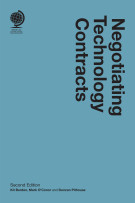Saving time and costs in arbitration proceedings - Risse's Rules v Rees's Rules
07 November 2014

Author bio coming soon

Author bio coming soon
The issue of saving time and costs is a topic dear to stakeholders in the business of international arbitration. Institutions are constantly reviewing their rules and procedures in pursuit of this objective. Ben Ko and Anjuli Patel pitted opposing time- and cost-saving proposals against one another to open discussion to the floor.
The issue of saving time and costs is a topic dear to many stakeholders in the business of international arbitration. Institutions are constantly reviewing their rules and procedures in pursuit of this objective.
In a recent paper, Dr Jörg Risse, partner at Baker & McKenzie in Frankfurt, put forward 10 “drastic proposals” to save time and cost in arbitral proceedings. At an event in London on July 1, he explained how his proposals would work in practice and Peter Rees QC responded with four of his own alternative ‘Rees's Rules. These are interesting proposals for discussion and we set them out below. We would welcome any thoughts/comments on whether you consider these might be effective.
Risse's Rules
- Limit submissions to 100 pages - fewer pages to write and read saves time and costs; and naturally filters repetitive arguments, hopeless submissions and unnecessary authorities.
- One-hour oral summary of pleadings at terms of reference meeting, with subsequent recommendations issued by the tribunal on the points to address in submissions - crediting this proposal to Constantine Partasides, Risse explains that this would facilitate focused submissions on points material to the outcome of the arbitration.
- Mandatory Calderbank offers - requiring the parties to exchange Calderbank offers focuses the parties' minds on the risk of having to bear all costs of the arbitration. A clear financial incentive to encourage settlement would save time and costs.
- Replace written witness statements with interrogation by arbitrators - the time and costs of drafting statements, preparing witnesses and cross-examination are disproportionate to their utility. Requiring the parties to identify the individuals whom they intend to call and to which facts they can testify would better equip the tribunal to decide whether the testimony is relevant to the outcome; only if it is should that witness be called.
- Absolutely no document production - since document production rarely, if ever produces the proverbial smoking gun, Risse’s alternative is the civil law system of restricting a party to the facts of which it is aware and the documentary evidence it already holds. The benefits of document production do not justify the cost - removal would yield significant savings with proportionately little harm.
- Directives by tribunal as to material issues - after the close of pleadings, the tribunal should actively manage the hearing by specifying which issues are crucial to the outcome of the case and hear only evidence to those issues. Requiring the tribunal to make these tough decisions early on avoids the time and costs expended on irrelevant discussions and unnecessary evidence.
- Comprehensive opening statements and discussion on the merits - detailed opening statements at the hearing, taking the tribunal through the evidence and discussing the merits of the case, would highlight what the tribunal is particularly interested in and enable counsel to more aptly question the witnesses and frame their post-hearing submissions accordingly.
- Parties’ assistance in writing the final award - a summary of each party's position on the key issues, as directed by the tribunal and prepared by the parties themselves, would allow the tribunal to copy and paste extracts into the award. This would expedite the tribunal's internal deliberation and writing of the award, while providing some insulation from appeal.
- Explicit cost sanction for inefficient handling of proceedings - the tribunal should explicitly allocate at least 20% of costs in accordance with the efficiency of the parties' counsel's conduct. Fear of the client finding criticism of his or her efficiency in the award would provide counsel with a strong incentive to behave reasonably.
- Financial incentive for the arbitral tribunal to render the award quickly - ratcheted premiums and deductions to the tribunal's fees according to the speed at which it renders an award would fill the current gap in standard practice by creating a carrot and stick incentive.
Rees's Rules
- Participants in arbitration should make use of Calderbank offers - this would help to incentivise parties to settle their disputes. However, it may be difficult for tribunals to take account of Calderbank offers since current practice (in International Chamber of Commerce cases at least) militates against having separate awards on liability and costs.
- There should be clarification in a table drawn up by the tribunal of the issues that are material to the outcome a case, with input from the parties as to how they will prove them - after two rounds of submissions and before document requests, witness lists or expert reports, the tribunal should list the issues in dispute in a table and invite the parties to identify in that table how their case on each issue will be established: by a document, a factual witness, an expert witness or a legal submission. This would clarify the parties’ approach to the case, enable the tribunal to assess the extent of document production necessary, ensure that only necessary witnesses are called and force the tribunal, ahead of the hearing, to understand the issues material to the outcome.
- Parties should pay for any document discovery they require regardless of the outcome of the arbitration - this would mean paying not only for searching and producing their own documents, but also the other side’s costs for searching and producing documents pursuant to document requests. When it comes to cost awards, penalties should be imposed for superfluous document production. It is suggested that this approach could be enshrined in the parties' arbitration agreement.
- The timetable for the arbitration should include both deliberation and award-writing time to ensure that the tribunal renders the final award more quickly - it is necessary to incentivise tribunals to render awards more quickly, but this need not be a financial incentive. Rather, an early procedural order should set out a timeline within which the tribunal must consider and render the award.













Any comments - send us an email